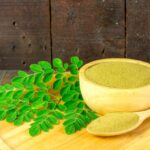Black Cumin Seed Oil vs. Other Natural Oils
Table of Contents
Black cumin seed oil, extracted from the seeds of Nigella sativa, has gained popularity in skincare and haircare for its potent therapeutic properties. Often compared to other natural oils like coconut, argan, jojoba, and tea tree, it stands out due to its unique composition and versatile benefits. This article explores what sets black cumin seed oil apart and how it compares to other popular oils for achieving glowing skin and healthy hair.

Unique Composition of Black Cumin Seed Oil
Black cumin seed oil is distinguished by its rich blend of bioactive compounds, including thymoquinone, nigellone, and a high concentration of essential fatty acids (like linoleic and oleic acids). Thymoquinone, a powerful antioxidant and anti-inflammatory agent, is rarely found in other oils, giving black cumin seed oil an edge in combating oxidative stress and inflammation. It also contains vitamins A, B, and C, along with minerals like zinc and magnesium, which support skin repair and hair strength. Unlike many oils, it has antimicrobial and antifungal properties, making it particularly effective for acne-prone skin and scalp issues.
Comparison with Other Natural Oils
1. Black Cumin Seed Oil vs. Coconut Oil
Coconut Oil: Known for its deep moisturizing properties, coconut oil is high in saturated fats, particularly lauric acid, which provides hydration and antimicrobial benefits. It’s widely used for dry skin and hair conditioning but can be comedogenic, clogging pores for some skin types.
Black Cumin Seed Oil: While less heavy, black cumin seed oil still hydrates effectively due to its fatty acids. Its non-comedogenic nature makes it better suited for acne-prone skin. Additionally, its anti-inflammatory and antioxidant properties surpass coconut oil, offering broader benefits for skin healing and hair growth.
Key Difference: Black cumin seed oil’s thymoquinone and lighter texture make it more versatile for sensitive or oily skin, while coconut oil excels for intense hydration.
2. Black Cumin Seed Oil vs. Argan Oil
Argan Oil: Rich in vitamin E and oleic acid, argan oil is a go-to for anti-aging and hair nourishment. It smooths fine lines, adds shine to hair, and is lightweight, making it suitable for most skin types.
Black Cumin Seed Oil: Argan oil focuses on hydration and repair, but black cumin seed oil goes further with its antimicrobial and anti-inflammatory effects. It’s more effective for acne, eczema, and scalp conditions like dandruff, thanks to its unique compounds.
Key Difference: Black cumin seed oil addresses specific skin and scalp issues, while argan oil is a general-purpose hydrator and conditioner.
3. Black Cumin Seed Oil vs. Jojoba Oil
Jojoba Oil: Chemically similar to human sebum, jojoba oil balances oil production, making it ideal for both oily and dry skin. It’s lightweight and absorbs quickly, often used for moisturizing and hair conditioning.
Black Cumin Seed Oil: Jojoba oil lacks the potent bioactive compounds like thymoquinone, limiting its therapeutic scope. Black cumin seed oil’s antimicrobial and healing properties make it better for treating skin conditions and promoting hair growth.
Key Difference: Jojoba oil is a neutral, balancing moisturizer, while black cumin seed oil offers targeted healing and anti-inflammatory benefits.
4. Black Cumin Seed Oil vs. Tea Tree Oil
Tea Tree Oil: Renowned for its strong antibacterial and antifungal properties, tea tree oil is a staple for acne and scalp issues. However, it’s highly potent and must be heavily diluted to avoid irritation.
Black Cumin Seed Oil: While both oils combat bacteria and fungi, black cumin seed oil is gentler and can be used in higher concentrations with less risk of irritation. It also provides moisturizing and antioxidant benefits, which tea tree oil lacks.
Key Difference: Black cumin seed oil is a milder, more nourishing alternative to tea tree oil, with broader skincare and haircare applications.
Unique Benefits of Black Cumin Seed Oil
- Versatility for Skin Conditions: Its antimicrobial, anti-inflammatory, and antioxidant properties make it effective for acne, eczema, psoriasis, and even minor wounds, surpassing the capabilities of most oils.
- Hair and Scalp Health: It strengthens follicles, reduces dandruff, and promotes growth, offering a comprehensive solution compared to oils focused solely on conditioning.
- Anti-Aging Power: Thymoquinone and vitamins fight free radicals, reducing fine lines and improving skin elasticity more effectively than many hydrating oils.
- Gentle Yet Potent: Unlike tea tree oil, it’s less likely to irritate, making it suitable for sensitive skin while still delivering strong therapeutic effects.
Practical Applications
For skin, black cumin seed oil can be used as a cleanser, moisturizer, or spot treatment for acne. Mix 2–3 drops with a carrier oil (like jojoba) for a facial massage or blend with honey for a mask. For hair, apply 1–2 tablespoons to the scalp for growth stimulation or mix with olive oil for a conditioning mask. Its versatility allows it to be combined with other oils to enhance their effects.
Black cumin seed oil stands out among natural oils due to its unique blend of thymoquinone, antioxidants, and antimicrobial properties. While coconut oil excels in hydration, argan in anti-aging, jojoba in balance, and tea tree in antibacterial action, black cumin seed oil combines these benefits with added healing and anti-inflammatory effects. Its ability to address acne, scalp issues, and aging while nourishing skin and hair makes it a must-have in any beauty regimen. Incorporate it thoughtfully to unlock its full potential for radiant skin and vibrant hair.


















